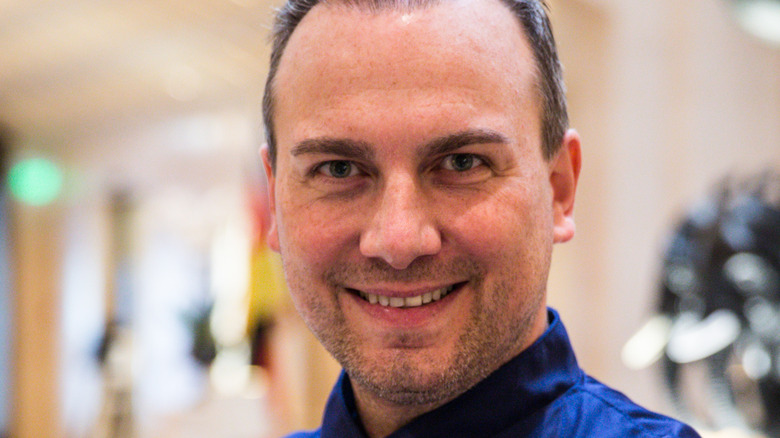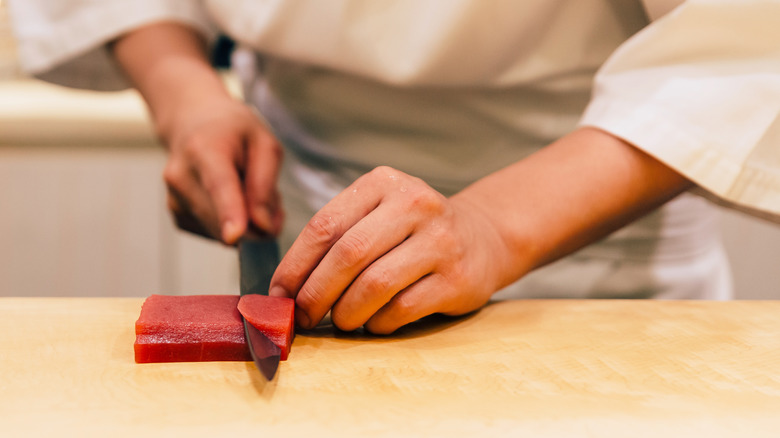How Tim Raue Incorporates Asian Cuisines Into His Berlin Restaurant
The hit Netflix series Chef's Table depicted Tim Raue as Berlin's bad boy. From a rough, gang-affiliated upbringing to a high-stakes chef, the show painted a stern portrait. In an interview for Thrillist, Raue reflected on the episode, dissatisfied with his portrayal. He's invested in maintaining a calmer personality and building a tight-knit team. Following decades of experience in fine-dining kitchens, Chef Raue now represents Berlin's modern culinary scene.
His eponymous restaurant boasts two Michelin stars, serving creative Asian-influenced fare in an informal setting, per Michelin. Intermixing Thai, Chinese, and Japanese cuisine, Raue emphasizes high-quality ingredients and physiological balance. He avoids fillers like rice, bread, or noodles and serves an entirely gluten and dairy-free menu, says 50Best. Reinforced by a strong personal vision, he sees the restaurant as an extension of himself. A vehicle for his recollections from Asia, he's integrated cuisine from his past to great acclaim (via Eater).
Tim Raue draws from Asian flavors combined with European techniques to create a unique culinary experience
After visiting Singapore, Bangkok, Tokyo, and Hong Kong on a life-changing trip, Raue worked for four years to synthesize a new style. He drew from Japanese dedication to simplicity, Thai spice, and Chinese technique. Chilies are present in most of his dishes, but his main aim is balance. Sweet, spicy, and acidic flavors are combined in deft combinations, like in his acclaimed wasabi langoustine dish. The food is referential to Asian cuisine but entirely his own. His ingredients mirror such an approach — 99% are sourced from Europe, with only his spices brought in from Asia, according to Four International.
Such a free-flowing style emerged as a rebuttal against the formality of French dining. Raue appreciated the joyous nature of eating out in China and the sweetness and spice integral to Thai cuisine. His techniques are still rooted in his European background, but they're more flexible to global interpretations, eschewing fine-dining formalities. From the beginning of his career, Raue had a unique palate with a special knack for creating flavors. Incorporating Asian flavors furthered his innovative culinary voice– creating a spectacular result, per Eater.

